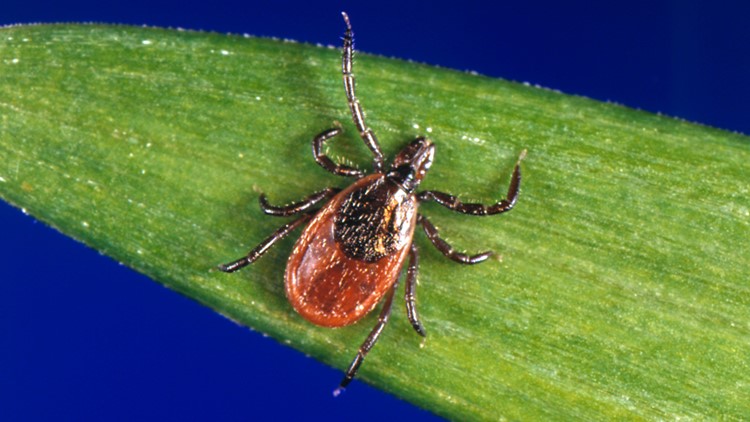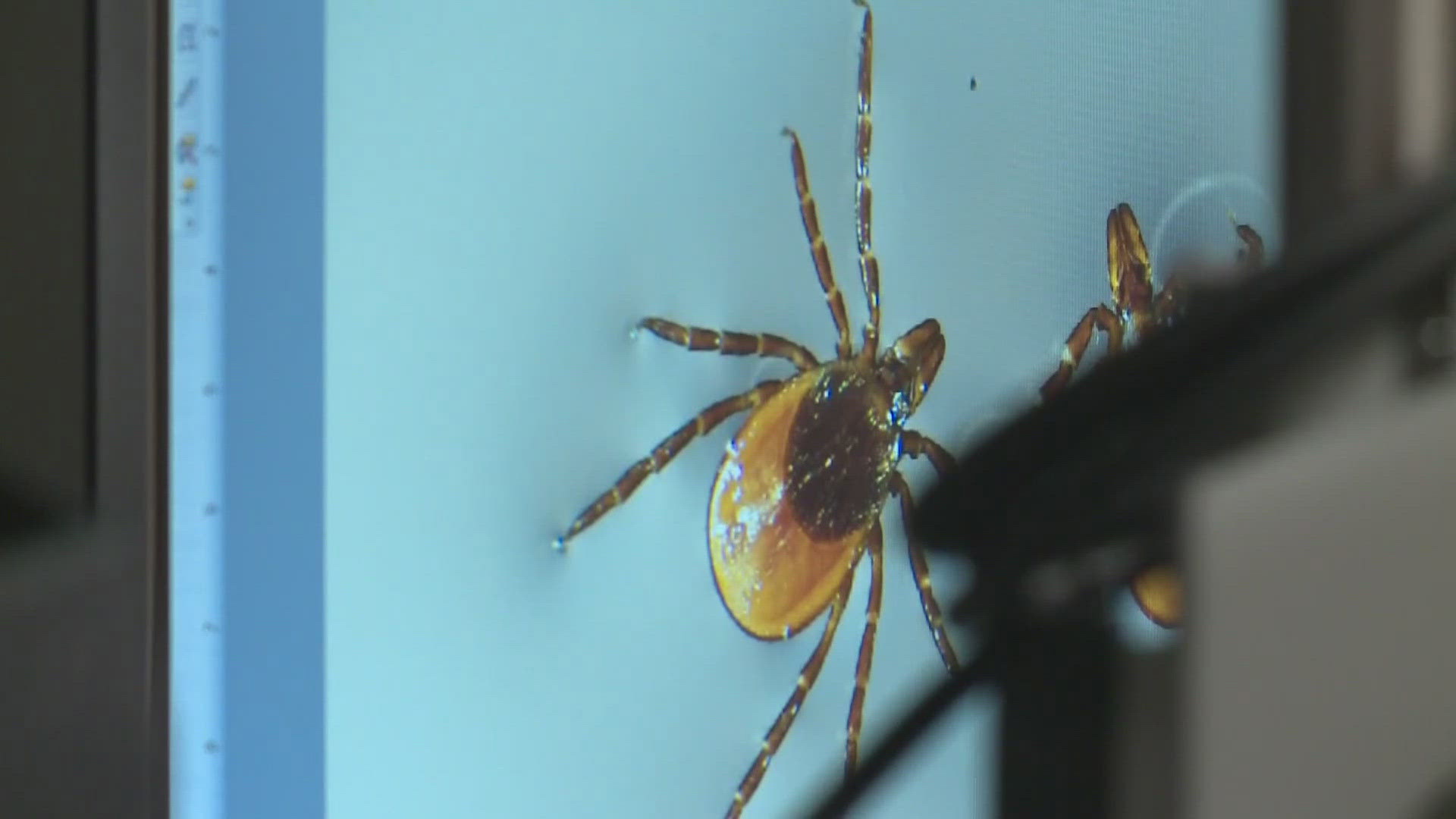ORONO, Maine — Researchers who track the prevalence of ticks and tick-borne diseases in Maine are getting more submissions of the pests this year. The Bangor Daily News reported the University of Maine Tick Lab has received 780 submissions of ticks so far in 2020.
It took until June 10 to reach that number last year.
According to the University of Maine Tick Surveillance Program Annual Report, 39 percent of ticks submitted to the lab in 2019 tested positive for Lyme disease. A total of 2,697 ticks were submitted to the lab last year.
Ticks can carry diseases such as Lyme disease, which has been increasing in caseload in Maine over the past two decades. The increase in the submission of ticks could have to do with more residents spending time outdoors this year than usual.
The University of Maine also runs the state's first active tick surveillance program, the Maine Forest Tick Survey, and has asked for volunteers who own wooded land in southern and coastal areas of Maine to collect ticks.
The University of Maine says, "The gathered information will help us to understand how to better protect Maine's landowners, forest workers, and recreationists against ticks and tick-borne diseases."
May is Lyme Disease Awareness Month, and the Maine Center for Disease Control urges Maine people to take precautions against ticks during the active month.
The Maine CDC received a record 2,079 Lyme disease case reports from health providers in 2019. This is the highest number of cases ever reported in the state and, according to Maine CDC, the number may have even risen after January 16, 2020 (the date they released that number) as providers were still making additional case reports.
RELATED: May is Lyme Disease Awareness Month in Maine! Make sure you're taking precautions against ticks!
The Maine CDC encourages following four strategies help to prevent exposure to ticks and the diseases they carry:
- Use caution in areas where ticks may be found.
- Use an EPA-approved repellent such as: DEET, picaridin, IR3535, and oil of lemon eucalyptus.
- Wear light-colored clothing that covers the arms and legs and tuck pants into socks.
- Perform tick checks daily and after any outdoor activity
For information about how to submit a tick for testing, click here.



